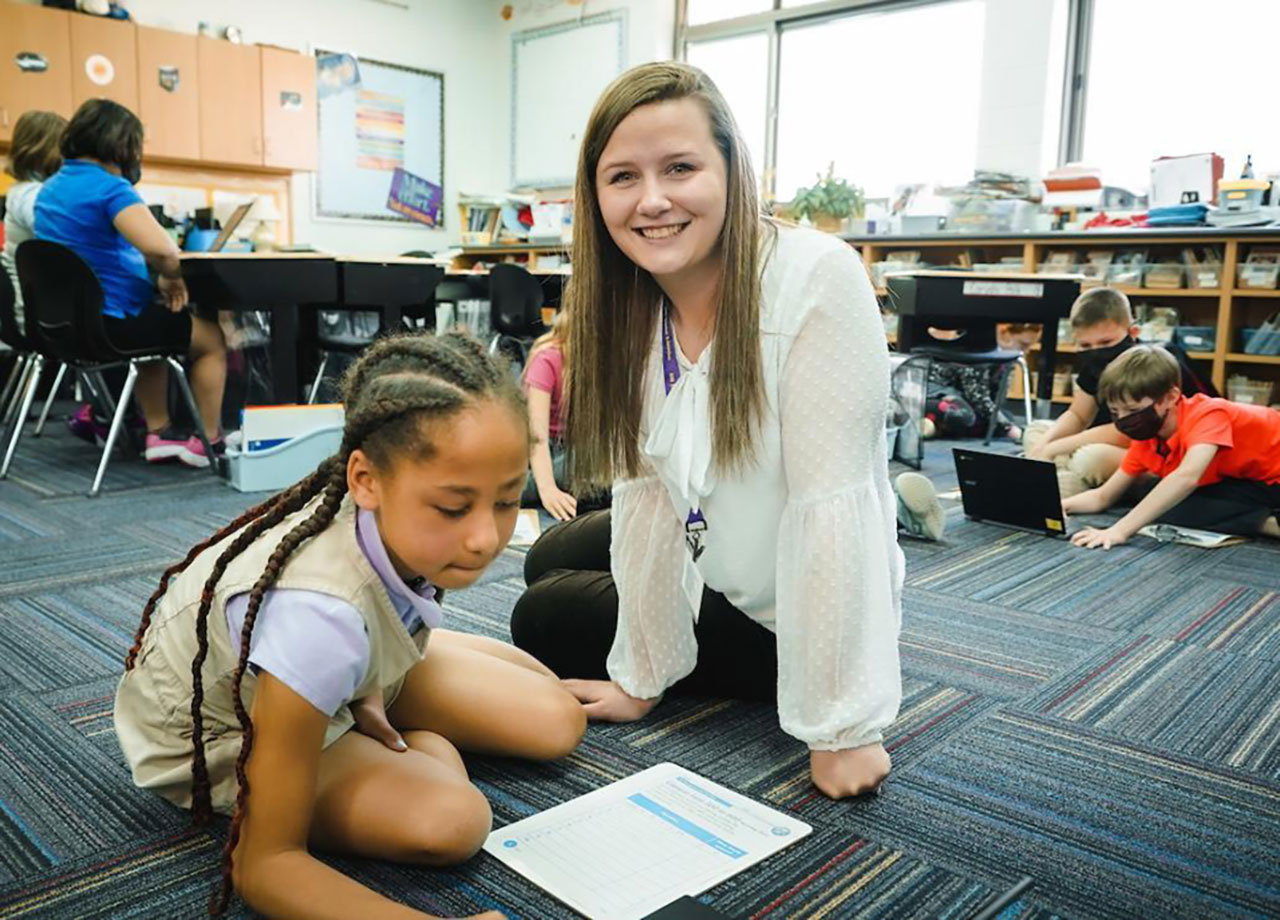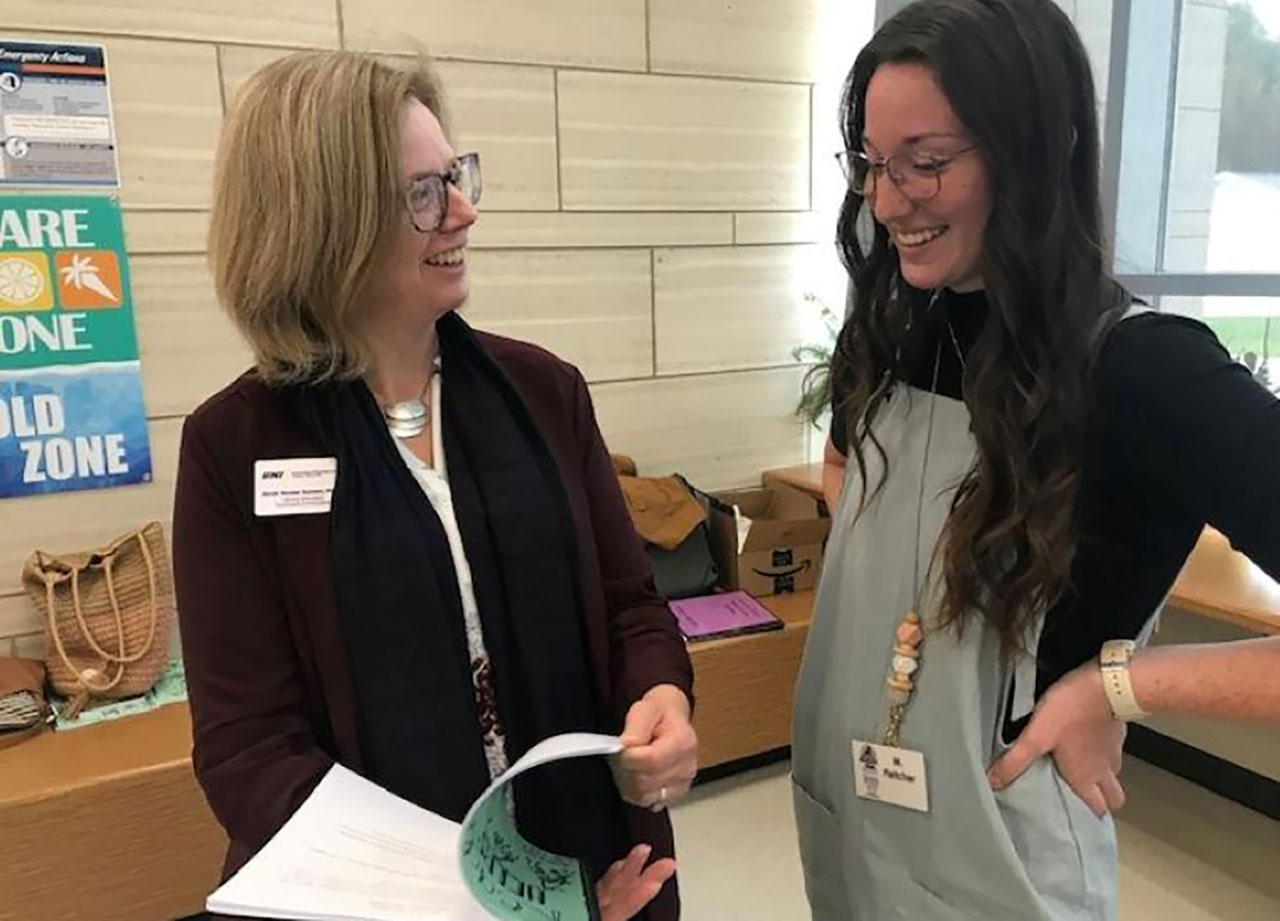Elementary Education Major
Make a difference. Impact future generations. Be part of Iowa's leading elementary education program.
Elementary education is a big part of who we are at the College of Education — and at UNI. Here you’ll gain the tools and resources you need to understand elementary-aged children and how they learn. Discover state-of-the-art techniques and skills in how to teach based on best classroom practices. Add minors that fit your interests and expand your options. Benefit from multiple opportunities to get in the field to put what you’ve learned into practice.
And, choose a pathway that works for you. Earn your BA as a student on campus or through online options like the elementary education online transfer program or Purple Pathway for Paraeducators.
Generations of elementary education teachers are proud UNI graduates. Join us in continuing the tradition.

Personalized Attention
Receive one-on-one attention from faculty and benefit from more personalized learning approaches.
Students at UNI
You'll have company here, where 1 in 8 students are elementary ed majors.
Career Placement
Post-graduation, 98% of College of Education teaching graduates either found jobs or chose to pursue further education.
Interested in Majoring?
Tell us more and we'll send information on how you can succeed with a degree in elementary education from the University of Northern Iowa College of Education.
Contact us directly at:
Elementary Education
Department of Curriculum & Instruction
SEC 613
Cedar Falls, IA 50614-0606
Phone: (319) 273-2167
Email: curr.inst@uni.edu
Courses & Careers
Courses
The elementary education major includes a carefully planned sequence of courses. You can double major in early childhood and middle level (middle school/junior high) education and add courses for an assortment of minors. A sampling of courses:
- Mathematical Reasoning for Elementary Teachers
- Inquiry into Life Science
- Educational Technology and Design
- Children’s Literature
- Dynamics of Human Development
- Elementary Curriculum
- Classroom Management K-8
- Schools and American Society
- Teaching Elementary School Science
- Teaching Elementary School Social Studies
- Teaching Mathematics in Elementary School
- Methods of Teaching Early Literacy
Careers
Teachers remain in steady demand. Your degree could also be the first step to a career beyond the classroom--such as becoming a principal. Or finding your passion in informal education in a museum. Here are some career options to ponder:
- Teacher
- Principal
- School psychologist
- Counselor
- Instructional coach
- Teacher leader
- Curriculum design
- Assessment specialist
- Teacher librarian
- Informal education specialist (museums, historical sites, etc.)
- Afterschool programs
- Edu-business
- Edutainment
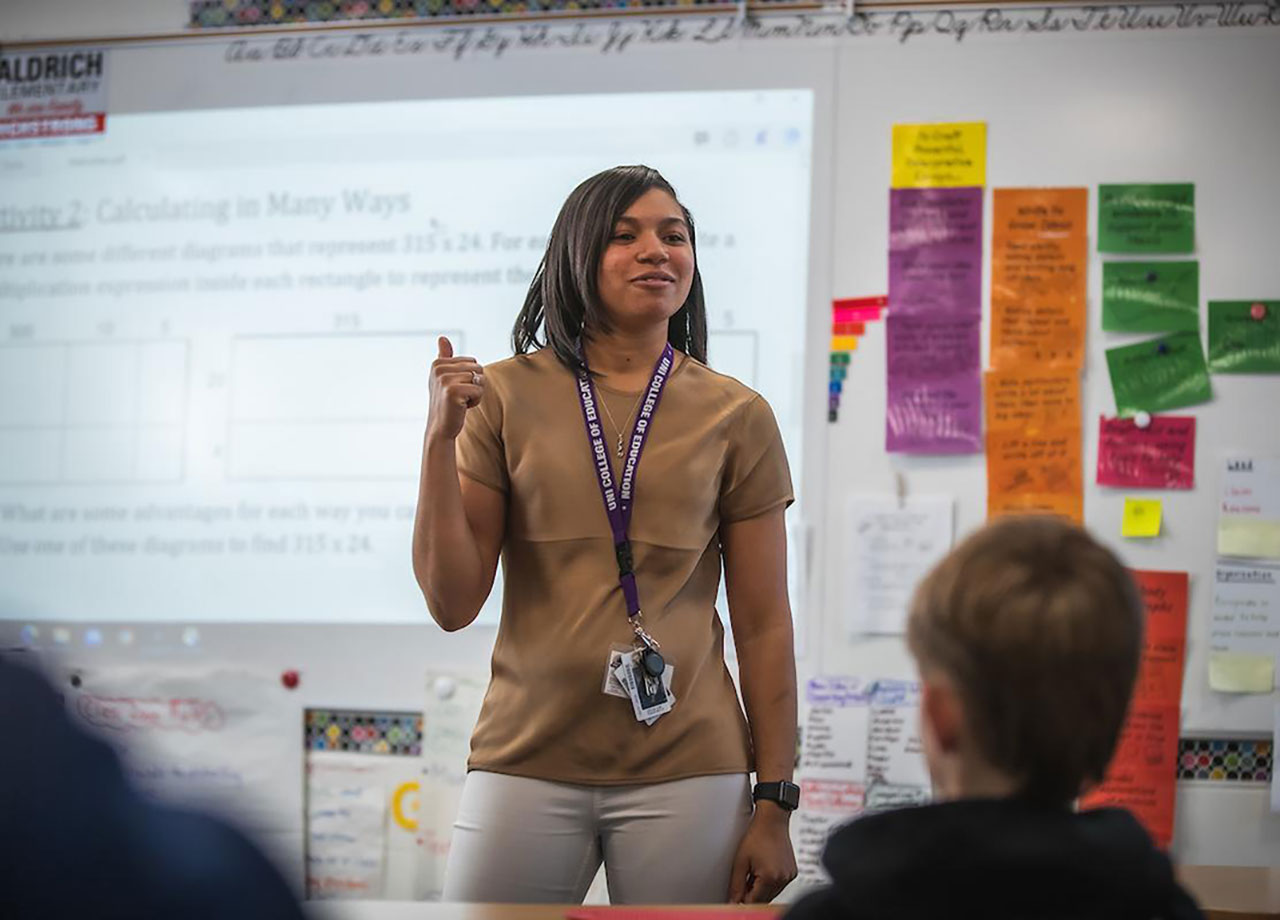
Alternative Pathways
- Online elementary education transfer program BA for those with an AA, AS, or BA degree, regardless of where they live
- Purple Pathway for Paraeducators, an online accelerated pathway for employed paraeducators
- Teach Waterloo, for paraeducators or other support positions employed by the Waterloo Community School District (WCSD)
- Degree in 3, part of the Cedar Valley Career Links partnership with WCSD and Hawkeye Community College
Minors and Endorsements
Literacy and special education lead the way among the minors most UNI students choose. With 20+ teaching majors and related minors, UNI gives you the advantage of choice. And when completed, you'll qualify for a teaching endorsement in these areas as well. Here are a few of the leading minors you might choose.
Beyond the Classroom
Get Connected.
Join a student organization or an honors society to get connected with other students who share your interests!
Student organizations:
- Student Elementary and Early Childhood Association (SEECA)
- Student Literacy Association
- America Reads
Honor societies:
- Kappa Delta Pi
- Alpha Upsilon Alpha, Alpha Chapter
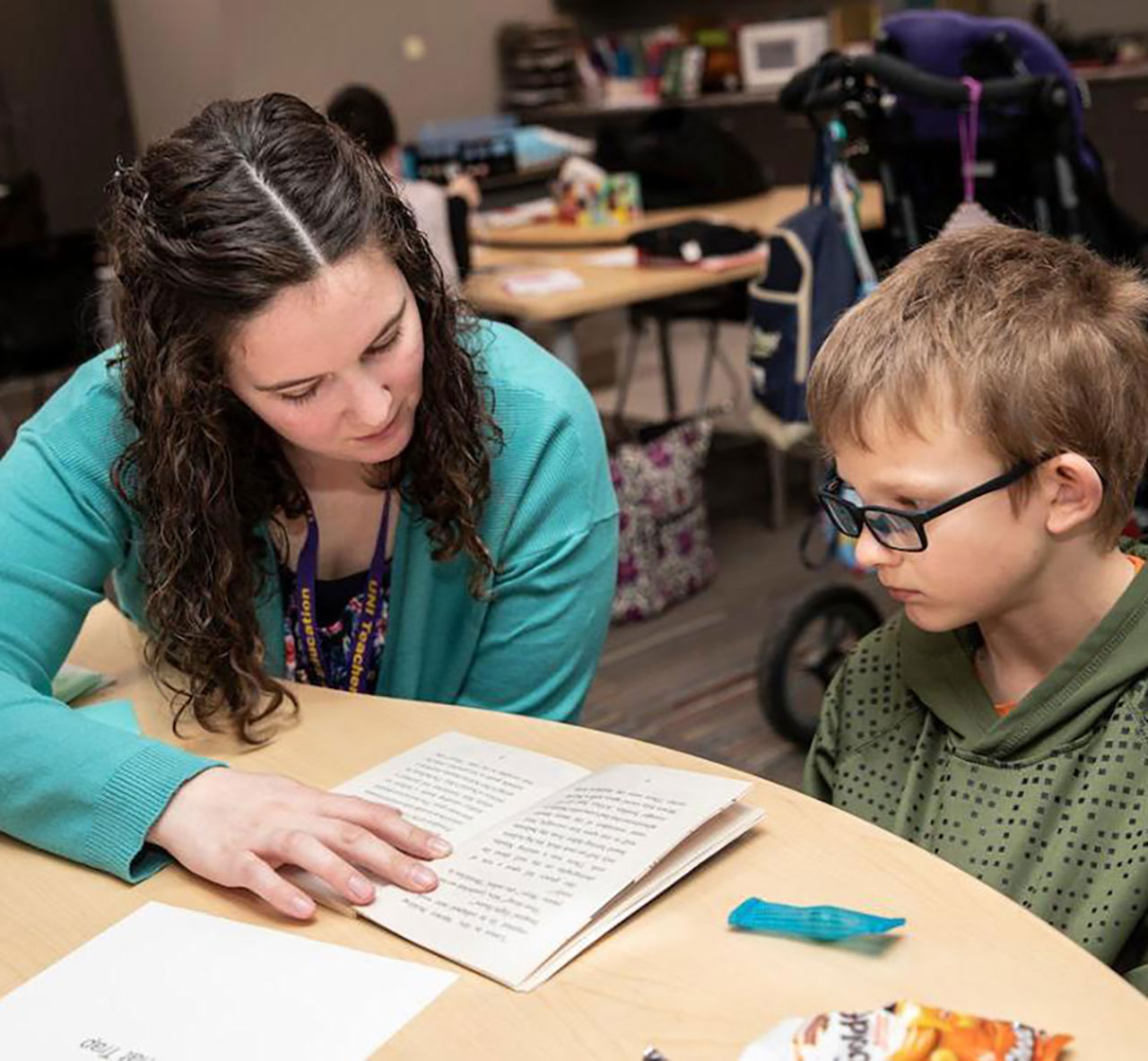
Apply Your Knowledge.
Here at UNI, you get into the classroom early and often. That includes:
- Observing elementary classroom teachers and conducting small and large group lessons for a minimum of 100 hours
- Immersing yourself in a classroom for an entire week to focus on and apply teaching methods
- Choosing from a variety of classroom settings and locales (including international) to complete your student teaching
These placements let you apply theory to practice, receive constructive feedback, participate in meaningful reflection and have ownership in your growth. The experiences, the connections you make — all add up to a hallmark of being part of UNI Teacher Education.
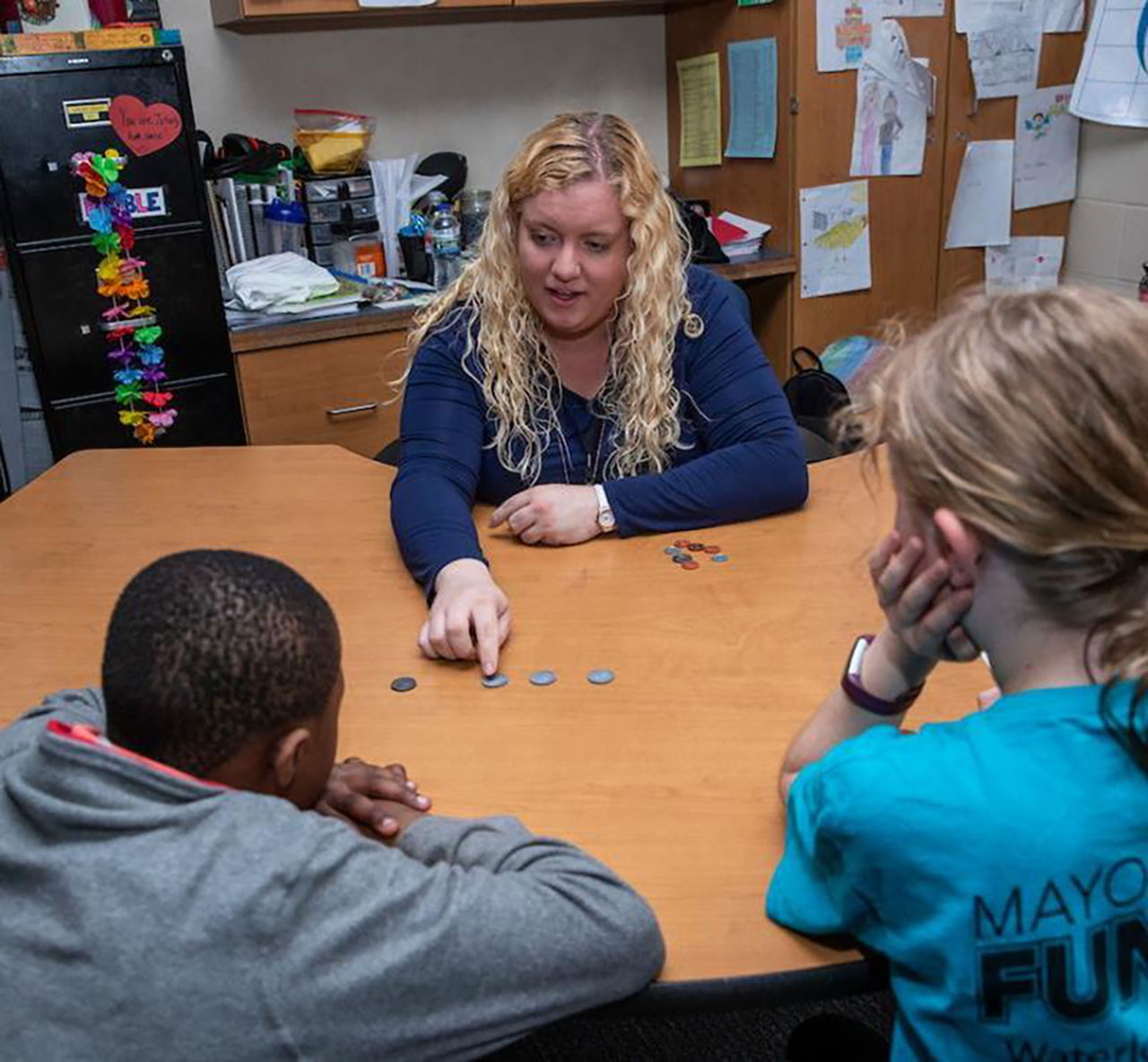
Get Connected.
Join a student organization or an honors society to get connected with other students who share your interests!
Student organizations:
- Student Elementary and Early Childhood Association (SEECA)
- Student Literacy Association
- America Reads
Honor societies:
- Kappa Delta Pi
- Alpha Upsilon Alpha, Alpha Chapter

Apply Your Knowledge.
Here at UNI, you get into the classroom early and often. That includes:
- Observing elementary classroom teachers and conducting small and large group lessons for a minimum of 100 hours
- Immersing yourself in a classroom for an entire week to focus on and apply teaching methods
- Choosing from a variety of classroom settings and locales (including international) to complete your student teaching
These placements let you apply theory to practice, receive constructive feedback, participate in meaningful reflection and have ownership in your growth. The experiences, the connections you make — all add up to a hallmark of being part of UNI Teacher Education.


